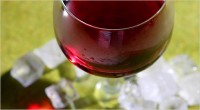Grapevine: Women Winemakers’ Progress in Modern Day France
 The origins of winemaking have been traced back nearly 8,000 years. As societies evolved and advanced over this continuum, the face of the wine industry has remained remarkably static in one regard: the role of women winemakers and winery owners. A common thread throughout wine’s history is the dominant role of men in the vineyard and in the winery and the lack of opportunities for women.
The origins of winemaking have been traced back nearly 8,000 years. As societies evolved and advanced over this continuum, the face of the wine industry has remained remarkably static in one regard: the role of women winemakers and winery owners. A common thread throughout wine’s history is the dominant role of men in the vineyard and in the winery and the lack of opportunities for women.
In previous columns I explored the changing role and gaining prominence of women winemakers in the United States and Italy. This week I turn my focus to France.
 Nowhere is the dichotomy of the role of women in wine as apparent as in France. The role of women has been influenced by different circumstances in each region: culture, engrained family prejudices and an “Old World” mentality that blatantly discriminated against women. As these factors begin to ebb, the fate of women winemakers in is the balance.
Nowhere is the dichotomy of the role of women in wine as apparent as in France. The role of women has been influenced by different circumstances in each region: culture, engrained family prejudices and an “Old World” mentality that blatantly discriminated against women. As these factors begin to ebb, the fate of women winemakers in is the balance.
It seems ironic that women winemakers are at the helm of a number of the most prestigious wineries in the world, yet the winemaking profession as a whole continues to be dominated by men.
In the Bordeaux region, a disproportionate number of the most famous, and profitable, wineries are either owned by women or have gained prominence through the efforts of women winemakers. The list of women at the top of the French wine industry is legendary – and long-lived.
Through inheritances, and in several instances sheer will power, women in Bordeaux have acceded to prominence and have thrived through periods of political and economic unrest. As early as the nineteenth century, women established and fostered their reputation as artisans and aristocrats. Commanding prices in the hundreds of dollars per bottle, the wines produced by these women consistently garner accolades as the crème de la crème.
My highest regard and appreciation for Bordeaux wines is for those produced by these women. Year-in and year-out their wines are invariably rated in the Top 100 wines in the world: Phillipine de Rothschild of Mouton Rothschild, Sandrine Garbay of Chateau d’Yquem, May de Lencquesaing of Chateau Pichon-Lalande, Corinne Mentzelopoulos of Chateau Margaux. With these women in the forefront, the Bordeaux region is a shining light for women winemakers/owners everywhere.
The Champagne region, likewise, has been fertile ground for women to attain and retain control over wineries. Many inherited wineries from their husbands, stepping up to the helm by circumventing the male-biased hierarchy that dominated the region. Through their operational, marketing and financial expertise, they catapulted the Champagne houses of Veuve Cliquot, Pommery, Laurent-Perrier and Bollinger into world prominence that continues to this day.
Unlike in Bordeaux and Champagne, the Burgundy region suffers from a dearth of wineries that are run by women. It is the least represented region: there are less than 50 women winemakers in Burgundy and over 4,000 domaines. Women have historically suffered from male-dominated customs and genealogy. One exception is Véronique Drouhin-Boss, the fourth generation winemaker of Maison Joseph Drouhin, one of the largest and most highly regarded wineries in the region.
Other opportunities are growing. Enterprising women are the beneficiaries of tactics employed during the early development of France as a world power: marriage into winemaking families, influencing the breakup of family parcels into sub lots shared equally by family members and interfamily marriages to increase control over land ownership, all enhanced by their entrepreneurial spirit and dedication.
Although not as numerous as their counterparts in other regions around the world, these women are increasingly gaining the admiration and respect of wine lovers. Look for highly regarded wines from Nathalie Fèvre of Domaine Nathalie and Gilles Fèvre, Christine Dubreuil of Domaine Dubreuil-Fontaine, Anne-Claude Leflaive of Domaine Leflaive and Lalou Bize-Leroy of Domaine Leroy.

Although much progress is yet to be made to achieve overall equality with men, French women winemakers are increasingly making inroads – and being recognized for their talent and innovation.
Vive la femmes.
Nick Antonaccio is a 35 year Pleasantville resident. For over 15 years he has conducted numerous wine tastings and lectures. He is co-host of Glass Up, Glass Down, a local cable television series on wine and food; he also offers personalized wine tastings and wine travel services. Nick’s credo: continuous experimenting results in instinctive behavior. You can reach him at nantonaccio@theexaminernews.com or on Twitter @sharingwine.
